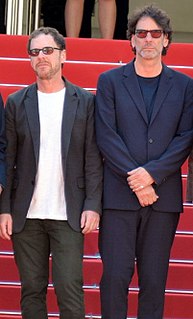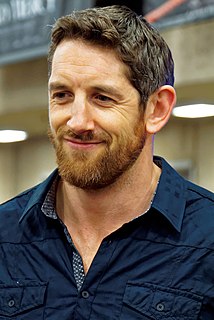A Quote by Charles Spurgeon
I am certain that the safest way to defend your character is never to say a word about it.
Related Quotes
The reason you keep on coming back to see me is very simple; every time you have seen me your body has learned certain things, even against your desire. And finally your body now needs to come back to me to learn more. Let's say that your body knows that it is going to die, even though you never think about it. So I've been telling your body that I too am going to die and before I do I would like to show our body certain things, things which you cannot give to your body yourself... So let's say then that your body returns to me because I am its friend
You have a certain objectivity, as a member of the audience, and you can come away maybe being provoked into a certain discourse or a certain arena of questioning, regarding how you would deal with things that your character has to deal with. Whereas when you're doing a film, once you start asking, "What would I do?," you're getting the distance greater between yourself and the character, or you're bringing the character to you, which I think is self-serving, in the wrong way. The idea is to bring yourself to the character.
When you go for something because you're curious about it, you get psyched up about the chance of getting into it. It's like an actor meets a role, and you slip into that body and see what happens, to experience certain conditions, to adopt a certain character. Even shooting is a study of the character. I think both the character and the actor, and eventually the filmmaker - myself - are finding a way to accept their environment and being accepted and feel comfortable of themselves.
To terrorize a man into believing in God is never the work of God, but the work of human expediency. If we want to convince a congregation of a certain thing, we may use terror to frighten them into it; but never say that is God's way, it is our way. To call that God's method is a travesty to the character of God.
One thing I've learned as an actor as well as a producer is to trust my own instinct. When I first started acting I would sometimes have ideas about certain things, whether it's a scene, or a character or certain dialogue, that wouldn't be followed. I was never in a position to have the power to press the matter. Sometimes it wasn't even about my character. But I'd watch the movie afterwards and think I was right.
Nothing is secure. That is my message. Nothing can be secure, because a secure life will be worse than death. Nothing is certain. Life is full of uncertainties, full of surprises - that is its beauty! You can never come to a moment when you can say, "Now I am certain." When you say you are certain, you simply declare your death, you have committed suicide.
We depend on our words... Our task is to communicate experience and ideas to others. We must strive continually to extend the scope of our description, but in such a way that our messages do not thereby lose their objective or unambiguous character... We are suspended in language in such a way that we cannot say what is up and what is down. The word "reality" is also a word, a word which we must learn to use correctly.




































